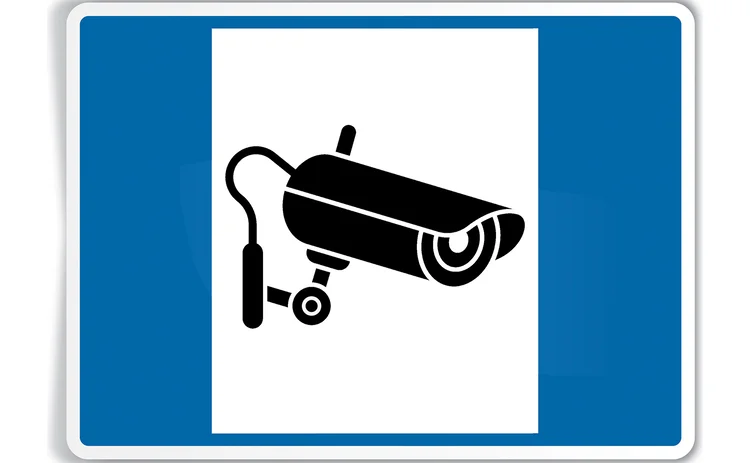
Analysis: The CMCs out of scope

When the Financial Conduct Authority took over claims management company regulation in 2019, it fired warning shots at the sector. Should the regulator’s remit be widened to cover those firms that don’t come under its surveillance?
The Financial Conduct Authority took over claims management company regulation from the Ministry of Justice in April 2019, with Scottish firms also coming under regulatory scrutiny for the first time, a move that was welcomed by the insurance industry. The change followed an independent review, with the new regulatory regime set to be tougher and ensure CMC directors were held personally accountable for any foibles within their business practices.
The Brady review recommended in 2016: “On balance, given the wide range of reforms already underway in this area, and the expected turbulence and contraction in the market, the least disruptive option would be for responsibility
to remain with MoJ. If, however, the government wants a step change in the regulation of the sector, then the balance would shift in favour of the FCA.”
It had caveated that “the most suitable option would appear to be a new, a stand-alone, independent regulator focused solely on CMC regulation”, though it correctly predicted that this was unlikely to be a cost effective option from the government’s perspective.
Fair value
CMCs may be an insurance bugbear but, when businesses play fair, experts are confident they can offer value to customers.
Ian Hughes, CEO of Consumer Intelligence, said: “In my view, there is absolutely a place for CMCs in the market and I myself have used one. The FCA has made it’s position on Consumer Duty and Fair Value clear and CMCs are touched by this thinking. Therefore, the price they charge for the work they do has to be fair. There are many players in the market that make hay out of an opaque and unfair market.
“Whether these businesses get taken out by the FCA or whether they get taken out because their business model will catch-up with them is unclear. What is clear is that unfair, expensive practices are coming to an end.”
Before the FCA took over their regulation, then CEO Andrew Bailey said in 2018: “A well-functioning claims management sector can help to provide justice and redress to people who have suffered harm. But the market doesn’t always work as it should and poor conduct persists across the sector.
“We want CMCs to be trusted providers of high quality, good value services that can truly help consumers. A key element of our approach to regulation will be ensuring that consumers are both protected and treated fairly.”
LV claims director Martin Milliner, who was among those calling for a change back in 2015, explained his rationale: “It was all about the teeth or lack of teeth that back in the day the Claims Management Regulator had under the MoJ.
“The enforcement powers it had were very ineffective, is the best way of putting it. The vetting of applications and the ability to investigate and punish poor behaviours in CMC world were just not there. So bringing the regulator into the FCA, which is there to provide the regulation the MoJ never was – it was not set up to be a regulator – is absolutely paramount to bring order into the CMC world. That for me, with the advanced powers, in the investigation skills and resources that the FCA had, is a game changer really for CMC regulation.”
Existing CMCs had to apply for temporary permissions by March 2019, with the FCA officially becoming their watchdog from April that year. The regulator then set to the task of scrutinising and officially authorising firms.
Next steps
Since taking on the CMC challenge, the FCA has cracked on with change making.
A letter to CMC bosses last October served as a warning shot, with the regulator stating: “In general, many CMCs have demonstrated a poor understanding of, and sometimes attitude to, their regulatory obligations.”
The FCA flexed its regulatory muscles as it warned it would look to enforcement powers if needed, highlighting seven key areas of harm: unclear or misleading advertising; poor fee disclosure; unclear fee structures; poor service structures; poor outcomes due to checks failures; association with individuals previously involved in misconduct, and data recycling.
Firmly in the regulator’s crosshairs has been phoenixing CMCs, which arise when a financial services firm goes out of business, with connected individuals later reappearing seeking compensation for customers who lost out due to poor conduct at the original firm.
In one case the regulator prevented the authorisation of a CMC set up by the wife of a former managing director barred from acting as a director - the CMC was claiming more than £5m from the Financial Services Compensation Scheme on behalf of customers making conduct claims against the husband’s former financial advice firm.
The FCA has also levelled proposals that could see CMCs operating in financial products and services claims have the fees they can charge customers capped at between 15% and 30% - with a view to potentially opening this up to firms targeting other areas.
A fee cap is something that is firmly on some insurers’ wish lists.
Milliner queried: “Just simply being an introducer of business to a solicitor, does it really warrant them taking 30% of somebody’s compensation?”
He added: “From a consumer’s perspective, [it is not] value for money. And what it does do is, with such a potential income, it just generates bad behaviours [such as] being able to still cold call or cold text or door knock, as happens up and down the country, or to perhaps encourage people in the value chain to become CMCs.”
The numbers
A downward trend in the number of CMCs materialised with gusto when the regulator took the reins. As of November 2020, 614 firms had relevant permissions to trade in the area, down from 1238 before the FCA took over. One-third of those that had previously had temporary permissions or authorisation were no longer permitted to operate in regulated areas.
By 10 May 2021 the numbers were up slightly, with 650 firms holding authorisation.
Describing the process of getting FCA regulated, Qamar Anwar, managing director of First 4 Lawyers, which had 37 staff in 2020, said: “The transfer process was straightforward. We were perhaps fortunate because members of our management team had experience of working within regulated businesses previously. We certainly didn’t fear FCA regulation.”
Anwar had previously warned back in 2015 of the risks of bucketing CMCs together, arguing there were "effectively two CMC markets - financial products and everything else".
Of a randomly generated sample of 320 out of 614 firms that were authorised as of last November, 39% (125) were found to be targeting financial products and services while 37% (117) were in the personal injury space. In comparison, under the MoJ umbrella 50.9% (630) of all authorised CMCs were targeting PI, and 48% (594) were targeting financial products and services. Post was unable to verify the exact nature of 10% (33) of firms.
11% (38) were still advertising services in the payment protection insurance space.
A once lucrative industry for some claims firms, consumers were paid £38.3bn back in PPI refunds from January 2011 to December 2019. The deadline for PPI claims passed in August 2019, with consumers now only able to claim in exceptional circumstances. PPI specialists like Gladstone Brookes, which in 2018 employed 192 people with profits of £1.1m and turnover of £56.1m, have sought to cancel their authorisation.
Gladstone Brookes has updated clients: “Initially, nothing will change, but from 24 June 2021, we will not be regulated by the FCA for claims management activity.”
The regulator noted on the company’s page on the FCA register: “This firm has applied to cancel its authorisation but must still meet our standards in dealing with its customers.”
On the surface, the longer term dwindling numbers appear a positive from the perspective of the insurance industry. But for some there is a missing puzzle piece.
Since taking over from the MoJ, the FCA has assessed 3458 reports of alleged unauthorised CMC activity and opened 216 enquiries into the activities of unauthorised CMCs. This has resulted in 71 published regulatory warnings, the regulator confirmed.
According to claims bosses like Milliner, who warned of a “mushrooming” of back door CMCs, the problem of unchecked CMCs could be widespread.
Milliner cautioned: “They’re still trading, but they have not gone to the FCA for authorisation. Or perhaps their authorisation has been rejected, or they have withdrawn from the process in large numbers. But that doesn’t mean to say they’re not still trading.”
The number of CMCs gaining regulation for the first time has been dropping year-on-year as claims volumes are rising and “new style claims” are emerging, another insurer source mooted.
Moving away
Some 325 firms had seen their permissions or authorisation retracted or lapsed under the FCA regime by mid-May 2021. So what about businesses that did initially apply for FCA regulation but did not go on to get authorised?
Using a list of firms that were no longer authorised as of November 2020 but had initially applied for temporary permissions, Post went undercover to enquire whether they were still taking claims.
The businesses were contacted by telephone, email and via their ‘contact us’ forms during the first half of 2021. Seven told our undercover reporter over the phone or by email that they were offering claims services.
These were: Morales, Gateway to Claims, Fylde Coast Replacement Taxis, National Renters Alliance, Air Delay, Brain Injury Group and Free Motor Legal.
Cost of CMC regulation
- £1200: One off application fee for firms with turnover up to £1m
- £10,000: One off application fee for firms with turnover of more than £1m
- £500: Minimum periodic fee
- £13 per £1000 or part £1000 of turnover above £100,000: Variable rate on top of minimum fee
- Regulated CMCs are also required to pay Financial Ombudsman Service fees
Source: Financial Conduct Authority
The findings showed that under current rules, not all firms that applied for authorisation were required to have it, as was the case with flight delay compensation business Air Delay. The FCA regime only applies to firms within personal injury, financial services and products, housing disrepair, specified benefit, criminal injuries and employment matters.
When contacted again by Post, other firms pointed to exclusions in the regulation that they said meant that if they take on a limited number of claims they could continue to offer services without the FCA’s scrutiny.
Firms are only required to get authorised if they handle more than 25 claims per three-month period, and pass on leads as their main business modus operandi rather than as an “incidental” activity. Firms that pass on such leads to authorised CMCs or solicitors are not monitored, it is understood. Instead, regulated CMCs and solicitors are required to carry out and document checks to ensure they’re not accepting leads from businesses that need authorisation, and where necessary, these records may be inspected by the FCA or Solicitors’ Regulation Authority.
They also pointed out the difficulties faced by smaller firms chasing FCA authorisation.
A representative of Morales, which specialises in immigration advice and advertises PI services, told Post that it handles “very few PI cases per month” and decided not to continue with the regulation because the process was “too difficult”.
They said: “It’s honestly not something for small businesses like mine, I’m a three people business. The FCA regulation process, it was just for massive businesses. I wouldn’t have [applied] even if I had to stop trading because it was just too complicated.”
Fylde Coast, said it handles a “handful” of claims and pointed out that it does not meet the 25 per quarter benchmark required for regulation.
Another business of the seven, Gateway To Claims, said it had moved from PI to credit hire, having made the decision prior to the FCA takeover.
The other firms did not respond to follow up requests for comment by Post.
Just who is exempt?
Providers of referrals are excluded from the FCA regulation if:
- The person who refers those details carries on no other regulated claims management activity;
- the activity is incidental to the providers main business;
- the details are only referred to authorised persons, legal practitioners, or a firm, organisation or body corporate that provides the service through legal practitioners;
- of the claims that the provider refers to such persons, that provider is paid, in money or money’s worth, for no more than 25 claims per calendar quarter;
- the provider in obtaining and referring those details, has complied with the provisions of the Data Protection Act 2018, the Privacy and Electronic Communications (EC Directive) Regulations 2003, the General Data Protection Regulation (EU) of the European Parliament and of the Council 2016/679, and the Consumer Protection from Unfair Trading Regulations 2008.
Source: The Financial Services and Markets Act 2000 (Claims Management Activity) Order 2018
Outside scope
Several areas fall outside the current scope of regulation. Funeral plans, for example, will not fall under the regulator’s watchful eye until 2022 according to the current timeline.
New avenues for savvy unregulated CMCs continue to open up, as flagged by insurers and law firms. Focus areas in recent years include cavity wall insulation, flight delay and Japanese Knotweed and more recently, amid a string of high profile incidents involving household names such as Facebook and British Airways, data breaches.
10 years ago CWI claims were "unheard of", BLM partner and head of fraud Sarah Hill told Post, and now they are a regular topic of debate within the insurance industry.
Allianz’s fraud team alone detected £2.6m worth of exaggerated and false CWI claims in 2020. The insurer warned: “This is a trend which continues to pose a challenge to the industry due to the prevalence of claims farming.”
According to Hill: “It’s not a surprise that CMCs continue to adapt and shift their business models in the face of costly regulation.”
HMT considered bringing CWI, timeshares and aviation claims under the regulatory umbrella in 2018 - but elected not to at the time, citing concerns that it might delay or place undue pressure on the regulatory transfer to the FCA.
Hill also took aim at marketing loopholes and data tactics, stating: “Opportunities to exploit the legislation and avoid regulation means there is a fertile environment for data theft to drive the claims identification and referral process.”
‘Hybrid’ social media and marketing lead generating companies, which may refer claimants to lawyers or CMCs, are a growing area of concern for some insurers.
“A claims environment now exists whereby an increasing number of unwitting consumers are placed in a claims and legal process through misleading information and clever marketing,” Hill added.
Cold calls, which were made illegal without prior permission for CMCs with the passing of the Financial Guidance and Claims Act (2018), texts and marketing emails may remain the bread and butter of some CMCs – in 2020 the Information Commissioner’s Office received 23,205 complaints about nuisance calls and text messages relating to accident claims alone, and this figure was down during the pandemic – but other firms have built an online shop window.
An insurer source told Post that online activity had contributed to the recent operational decision to put some fraud and verification resources around business interruption claims, an unregulated area where activity has been spotted prior to and since January’s Supreme Court judgment.
Google searching: Firms operating in unregulated areas by product offering and regulatory status
Post took to Google to look at CMC and lead generator online presences. Using the Chrome for web browser’s incognito mode, Post searched for the ‘type of claim’ plus ‘compensation’ and ‘claim’, taking its results from the first five pages including adverts.
Search results in all categories were dominated by no win no fee lawyers, with media reports and insurance lawyers’ round ups also featuring on the front five pages of searches. However, there was a healthy smattering of CMCs or lead gens in all searches but ‘data breach’, where one CMC result was returned overall.
Out of the 38 unique websites active across all categories, eight had FCA authorisation for at least one product or service. The remaining 30 firms, which included 18 flight delay businesses, fell outside of regulatory scope.
One unauthorised CMC discovered by searching for Japanese Knotweed also offered services relating to mis-sold mortgages, housing disrepair and Sipps. The firm, which Post flagged to the regulator, did not appear on the FCA’s warning list. It initially told a caller that it was authorised, though quickly backtracked when pressed for comment.
The results suggested some cut and paste crossover, with CMCs potentially operating across different brands from different websites. For example, the FAQs section of the data breach specialist website noted that the fee was 35% of “received flight compensation”.
Within flight delay, there was evidence of consolidation, with Airhelp having subsumed another business earlier this year.
Across Japanese Knotweed and CWI, Post found that multiple businesses appeared to have either lapsed or had websites that were no longer fully functional, with one CWI specialist having posted on its Facebook page around a year ago that “the legal arena is changing” heralding a less favourable environment for its business model.
Fee elements were not always transparent. 18 businesses did not state a specific fee range on their websites while those that did often included this in terms and conditions or FAQs rather than on the front page or on a claim form. There were examples of flight delay firms, which typically promise compensation of up to €600, charging additional legal action fees of up to 25% on top of a 25% to 35% standard fee. Four of them were seen to charge additional administration fees of between £20 and £25.
Credit hire
With the Official Injury Claim Portal launch and Civil Liability Act (2018) implementation, credit hire risks becoming a contentious space. Currently firms are only expected to get authorised if they encroach into PI. And only claims with a PI aspect will need to be made through the portal, which is expected to go live on 31 May. However, experts have warned that CMCs may covertly offer PI services bundled in with credit hire.
Facebook: ad library
Post looked at Facebook’s Ad Library, a publicly searchable platform launched in 2019, to see whether a social media advert flurry had materialised in an area that has been highly publicised over the past year: business interruption. Though BI is a financial product, it does not necessarily fall under the regulatory perimeter, as unlike mis-sold products such as PPI claims it could relate to exercising rights under a contract of insurance.
Post found that three unregulated firms and two regulated companies had placed ‘business interruption’ adverts via the platform.
The unregulated businesses included a lead generation company that states on its website that it performs no claims handling services but does pass on leads to CMCs.
Also advertising was an unregulated CMC displaying the terms and conditions identical to a regulated no win no fee lawyer on its website and supplying a gmail address in its contact details. The law firm told Post it was not aware of the business and would pursue the infringement of its property.
Additionally featuring was an unregulated company that also dealt in R&D tax claims, business financial hardship and rate refunds - its former limited company name suggested it had initially been set up with capital investment in mind, though it does not appear on the FCA’s register. It had placed 97 adverts, Facebook data shows.
The two regulated businesses had also placed 42 adverts between them.
A recent Post analysis confirmed that issues with potentially misleading Google adverts in credit hire, first flagged as far back as three years ago by The Sun, persist for customers of both brokers and insurers. Most of the firms found to be using the adverts were not regulated, though one was. Last year Google blocked or removed over 3.1 billion ads for violating its policies. 123 million of these ads were for financial services.
Carpenters director Donna Scully told Post: “It’s a loophole we could definitely do without, in my view. We may get some CMCs keeping overtly away from PI to avoid regulation, but in effect still operating in the PI market but keeping under the radar.”
Besides resourcing issues, Scully set out that there is no reason why “FCA regulation shouldn’t also be covering other CMC claims activity including hire and not limited to just PI [as regards motor]”.
She continued: “With Part Two of the whiplash reforms not being tackled any time soon, it means there is still a lot to play for in terms of commission from credit hire and credit repair.”
Three businesses that had applied for temporary permissions but no longer held them still appeared to be operating within the credit hire or roadside repair space, Post found in its analysis of the November data.
Between last November and May 2021 at least seven firms offering credit hire services were granted regulated status. Meanwhile, many Credit Hire Association leading member companies are already authorised by the FCA, according to the association’s CEO Peter Gomes.
Taking to Post, Gomes suggested that it would be a “good idea for FCA regulation to expand across the sector”.
He continued: “There may be some potential for unscrupulous CMCs to change their businesses in light of the new CMC regulatory regime and move into credit hire, but it is unlikely to be a significant risk, and we haven’t seen any evidence of that happening yet. If it does occur, it is likely to be at the margins of the industry.”
Expanding legislation
Expanding the scope of CMCs that fall under regulation is not a function of the FCA, which declined to comment for this article. It instead falls under HM Treasury’s remit.
HMT declined to comment. In a 2018 consultation response the department stated: “The government believes that regulation should be proportionate and further work is needed to understand whether these claims sectors [in particular CWI, timeshares and aviation] should be regulated in future. The government does not want to delay the transfer of the existing regime to the FCA and therefore will maintain the scope as set out in the consultation paper, but with a view to further consider whether new sectors should be within the scope of regulation in a future SI.”
On credit hire and medical reporting, it said at the time: “The government was clear during passage of the Financial Guidance and Claims Act that while these issues are linked to the claims management process, they are separate to the issue of claims management regulation. These issues are being considered through other work, taking into account the broader context of the market.”
Adapting
CMCs have shown themselves adaptable to regulatory change before.
There were an estimated 500 companies in the sector in 2006. The government had expected this number to drop following the Compensation Act (2006). Instead numbers hit a 3300 peak in 2011.
The 2013 referral fees ban saw around 1000 CMCs leave the sector. But, according to a government report, many had begun to adapt to rules “within two years” by working with solicitors to alter their models.
“For many of these CMCs, the main focus of their business is on providing services ancillary to personal injury. Other accident management activity including vehicle recovery, storage, repair and hire, has been proving more profitable than injury claim services. Some CMCs have actively diversified into these areas while those CMCs which are already doing so have seen these services become the primary income source,” it was stated in the MoJ’s Claims Management Regulation Report 2014/15.
Tighter regulation and legislation has also led to the formation of alternative business structures.
And firms have sought to adapt in the face of Legal Aid, Sentencing and Punishment of Offenders Act 2012 regulations.
The Solicitors Regulation Authority updated a warning to its solicitors in November 2019, cautioning that businesses using Laspo loopholes to continue arrangements involving introduction or referral of PI work could be “failing to consider their wider duties to clients” and in doing so could be breaching the Standards and Regulations they are expected to comply with. The regulator honed in on CMC client damages deductions, as well as outsourcing, inappropriate referrals, funding and fee arrangements and transparency.
Sources: House of Commons briefing paper, Number 8033, 15 August 2018; SRA warning notice
Only users who have a paid subscription or are part of a corporate subscription are able to print or copy content.
To access these options, along with all other subscription benefits, please contact info@postonline.co.uk or view our subscription options here: http://subscriptions.postonline.co.uk/subscribe
You are currently unable to print this content. Please contact info@postonline.co.uk to find out more.
You are currently unable to copy this content. Please contact info@postonline.co.uk to find out more.
Copyright Infopro Digital Limited. All rights reserved.
You may share this content using our article tools. Printing this content is for the sole use of the Authorised User (named subscriber), as outlined in our terms and conditions - https://www.infopro-insight.com/terms-conditions/insight-subscriptions/
If you would like to purchase additional rights please email info@postonline.co.uk
Copyright Infopro Digital Limited. All rights reserved.
You may share this content using our article tools. Copying this content is for the sole use of the Authorised User (named subscriber), as outlined in our terms and conditions - https://www.infopro-insight.com/terms-conditions/insight-subscriptions/
If you would like to purchase additional rights please email info@postonline.co.uk







